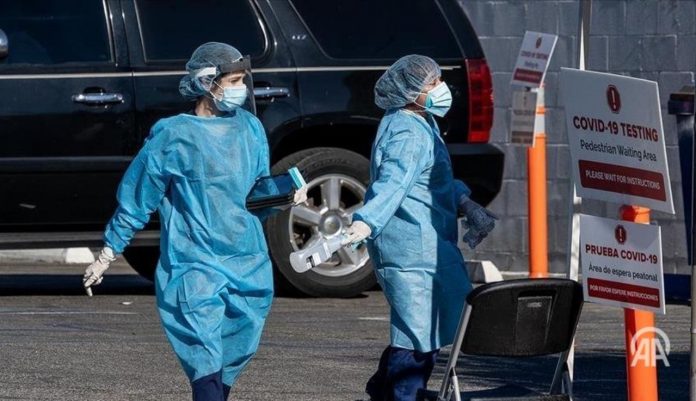Covid New Variants Detected, But No Need to Panic Yet, Say Health Officials
India is once again seeing a rise in COVID-19 cases in several states. The spike is mostly in southern states like Kerala, Tamil Nadu, Karnataka, Telangana and also in Delhi and Maharashtra. Health officials are keeping a close watch and say most cases are mild.
What’s Happening Right Now?
In the last few days, more people are testing positive for COVID-19 in cities like Delhi, Mumbai, Bengaluru, Hyderabad, Noida, and Thane. Many of these cases are being managed at home and don’t need hospitalisation. Health experts are saying there is no need to panic.
A high-level review meeting was held by the Union Health Secretary with top health officials from ICMR, DGHS and NCDC to discuss the situation. The focus is on quick testing, home isolation, and genome sequencing of samples.
New COVID-19 Variants Found in India
The NB.1.8.1 and LF.7 variants have been detected in India. According to INSACOG data:
- One NB.1.8.1 case was found in April in Tamil Nadu
- Four LF.7 cases were reported in May from Gujarat
Both these variants are listed by WHO as Variants Under Monitoring. They have caused spikes in China and other parts of Asia. However, officials say there is no strong evidence that these are more dangerous or severe than older variants.
The most common COVID variant in India right now is JN.1, found in 53% of sequenced cases. BA.2 makes up 26%, while other Omicron variants account for 20%.
State-Wise Updates You Should Know
Delhi
The national capital saw 23 new cases on Friday, the highest single-day count in nearly three years. All patients are stable and recovering at home. The Delhi government has asked hospitals to stay ready with beds, oxygen, medicines, and vaccines.
Maharashtra
Thane reported eight new cases on Saturday. A diabetic patient sadly passed away. Currently, there are 18 active cases in Thane alone.
Karnataka
The state has recorded 38 COVID-19 cases so far this year, 32 of them in Bengaluru. A nine-month-old baby tested positive and is now stable. An 84-year-old man with comorbidities passed away recently.
Uttar Pradesh
In Noida, one 55-year-old woman tested positive and is in home isolation. Ghaziabad recorded four new infections and has increased testing and monitoring.
Uttarakhand
AIIMS Rishikesh confirmed three new cases, including a tourist from Gujarat and a woman doctor. Officials said these were not local transmissions. With the Chardham Yatra happening, health teams have been sent along the route and genome sequencing has begun.
Andhra Pradesh and Telangana
Andhra reported four new cases – three in Visakhapatnam and one in Rayalaseema. Telangana logged one case from Hyderabad, where the patient, a pulmonologist, has recovered.
What the Government is Saying
The Health Ministry has said that most cases are mild and manageable through home care. Recent deaths were linked to other health problems, not the virus itself. There is no current evidence that the new variants are more dangerous. However, surveillance systems like IDSP and ICMR’s virus tracking networks are keeping an eye on things.
Should We Be Worried?
Officials have made it clear: the situation is under control. There’s no reason to panic, but people are advised to stay alert. Mild symptoms like fever, cold, or cough should be reported. Also, it’s important to follow basic safety like handwashing, masking in crowded places, and staying home if unwell.
Also Read: “20,000 Indians Killed in Terrorist Attacks”: India Slams Pakistan at UN
FAQs
Which new COVID variants have been found in India?
NB.1.8.1 in Tamil Nadu and LF.7 in Gujarat.
Are these variants dangerous?
So far, they are under monitoring but not classified as dangerous. Most cases are mild.
Are hospitals ready?
Yes, the Health Ministry has told hospitals to stay prepared with oxygen, beds, and medicines.
What’s the most common variant in India now?
JN.1, found in 53% of all recent samples tested.





